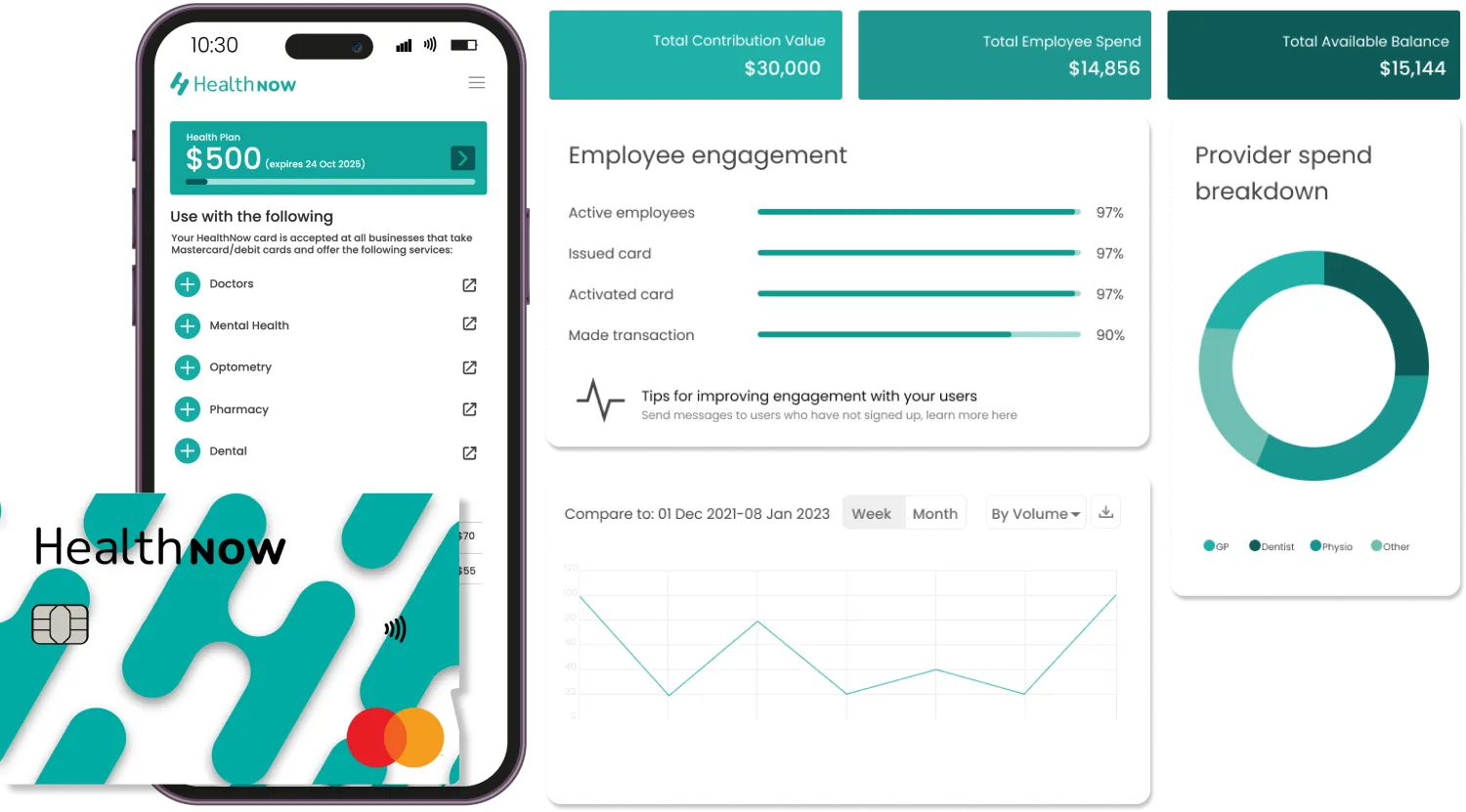As inflation and the rising cost of living put many employees into financial hardship acorss New Zealand and Australia, the ability to access healthcare becomes a significant concern. With the cost of everyday essentials increasing, many workers are finding it challenging to prioritise their health or meet their goals of getting on top of their health by accessing appointments for things like mole mapping, nutrition consultations, physical therapy sessions, and more.
Financial Hardship In The Face Of Inflation
The impact of inflation reaching 7.7% in the previous 12 months up to March 2023 has been a strain on employees’ wallets. As the average salary has increased by only 4.5%, workers are keenly aware that they are earning less than they once were in this current economy. While 53% of survey respondents received a pay rise last year, a staggering 61% of New Zealanders still believe their current salary is insufficient to meet the rising cost of living pressures – and where perhaps additional benefits could make a big difference.
The cost of living is not sparing any aspect of employees’ daily lives. From groceries (up 12.5%) to fruit and vegetables (up 21%), medical needs (9-11%), rent (up 5.4%), interest payments (up 38%), and various other essentials, the financial burden is substantial. A recent survey by Southern Cross Healthy Futures Report found that a remarkable 93% of respondents expressed their greatest concern over the rising cost of living.
Healthcare On The Back Burner
However, it’s not just financial struggles that employees are contending with. The cost of living survey revealed that around one in three New Zealanders are sacrificing their health by forgoing medical care when unwell. A striking 46% of New Zealanders without health insurance have delayed seeking medical help due to the financial burden and difficulties in securing appointments.
In a bid to manage their budgets, households are cutting down on discretionary spending, which includes wellness and healthcare expenditures for many – especially preventative healthcare such as regular dental checkups, mole mapping, and nutritionist consultations that have the power to optimise the long-term health of entire families. Additionally, over half of New Zealand workers are experiencing adverse mental health effects due to the inflated cost of living. Almost half of employees have reported that this financial stress negatively impacts their physical health, and a third claimed it was affecting their productivity at work.
The consequences of delaying personal healthcare are profound. Mental health delays can lead to stress and anxiety, which can, in turn, impact physical health, including sleep, nutrition, exercise, and digestion. These effects spill over into both personal and work life, with research from the University of Warwick indicating that happy employees perform their jobs 12% better, while stressed workers perform 10% worse. Delaying healthcare access now can also have significant financial implications for employees further down the track as their condition worsens or deteriorates – such as the need for a small filling in the tooth at the cost of a few hundred dollars escalating to the need for a root canal costing thousands.
Employee Health Optimisation With HealthNow
When health is put on the back burner, everyone loses – employers and employees alike, alongside their families. This is exactly why HealthNow exists – and it’s already making a significant impact on the health, well-being and satisfaction of employees across the country.
HealthNow payments are dedicated funds that are allocated annually by an employer to be used by employees solely for health and medical expenses as they see fit, within the parameters set by an employer. It is a custom and innovative solution that is designed to meet the variable needs of each company so they can distribute the allocated funds to the best of their ability and in the best interest of each team. HealthNow can help alleviate the health-related concerns caused by financial hardship by:
- Offering direct financial contributions for health and medical expenses. It ensures that employees can access healthcare services, both essential and preventative, without depleting their budgets.
- HealthNow empowers employees to be proactive about their health. Regular check-ups and early interventions can prevent minor issues from becoming major health concerns, along with major expenses.
- Knowing you have funds set aside and available to access healthcare services helps to bring peace and security, reducing stress and anxiety related to health issues.
- HealthNow allows employees to choose healthcare providers and services within approved categories, giving them the flexibility to make informed decisions about their health.
- Prioritising health today can have far-reaching effects on well-being and productivity, benefiting both employees and employers.
HealthNow For Employers: How It Works
Distributing funds starts with setting the monetary limit that will be available to your employees and/or contractors over a one year period. You also select the service sectors and merchant category codes that you approve for your employees to access – for example, selecting that your employees are able to use their funds to access physiotherapy, podiatry, optometry, audiology, and the like. Once the base parameters are set, your employees have access to utilise their funds as they see fit – whether that’s receiving medical care when they’re already unwell, or proactively pursuing their journey to better health in ways that will work to foster better health before they reach “the bottom of the cliff”, where absenteeism and presenteeism starts becoming prevalent in the workplace.
Each company is also able to select whether the employer aid funds will be available to employees only, or they can be extended to direct family members of employees, knowing that employee well-being is multifaceted and often greatly affected by the health of the entire family. If any employer aid funds are left unused in an employee’s account at the end of the year, they are not charged to the company – only utilised funds are deducted.
Employers also gain full insight into how their employees are using their funds, being provided with full summaries for expense management and demonstrating utility and efficacy to executive teams and boards. This comes as a great benefit to employers who are able to leverage this data to further support their teams in ways and on services that they can see are in demand and greatly appreciated, whether that be through wellness programs or other health initiatives.
You can also read more about the role of health benefits in amongst the financial hardship present in today’s job market, as well as how HealthNow can work with your organisation, in our 2023 Employer Market Report here.







